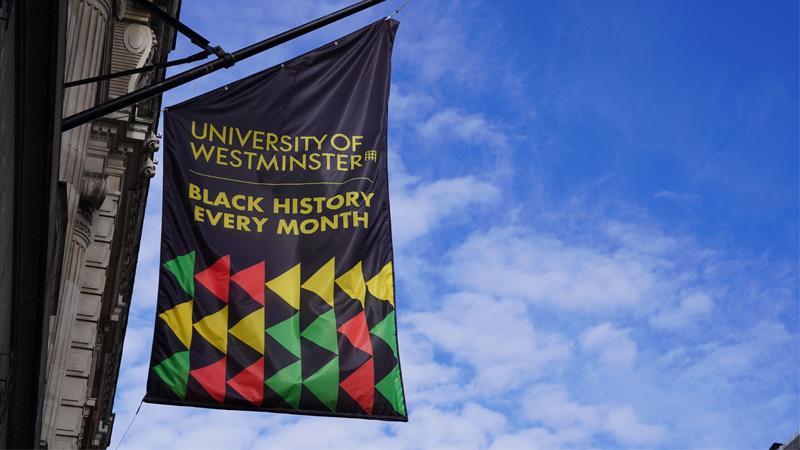In the latest edition of Westminster’s alumni magazine, Network, Black History Year is celebrated in a feature which looks at its origins, impact and future with insight from those closely involved.

The University’s Black and Minority Ethnic (BME) Network created Black History Year, an event series to acknowledge Black stories year-round, in recognition that the celebration of Black lives should not be reduced to a single month.
The Black History Year series encourages honest discussion, amplifying Black voices and accelerating the University’s progress towards becoming actively anti-racist.
The article quotes Dr Deborah Husbands, Senior Lecturer in Social Sciences at Westminster and co-chair of the University’s BME Network. She said: “The reason we shifted from a month to a year, is that Black history is an everyday experience. For me, Black history is not something that happens in October. It happens every day of our lives.”
Over the academic year, the Black History Year steering group (made up of members and allies of the BME Network and led by Dr Husbands), created a blog of resources and stories of Black lives at Westminster, and hosted 13 online events, welcoming speakers from an array of different disciplines and backgrounds.
Dr Husbands added: “We decided to take a really thematic approach and concentrate on the contribution that Black people have made, not just at Westminster, but globally and throughout history. For example, we looked at Black people in activism, in the creative industry, in professional services, in wellbeing and mental health.
“This isn’t about a slick production. We’ve just got people to come into this space and say what the reality of race and inequality is for them. So we’ve had experts, but we’ve also had lay people, and we’ve had people through Q&A articulate their own experiences.”
The article also quotes former Vice-President of Welfare and former BAME Officer of the Students’ Union (SU), Lubaba Khalid, who spoke about how the BHY platform provides an opportunity to have difficult conversations.
She said: “When I started as a Sabbatical Officer, it was very hard to have certain conversations, because some people just don’t understand. As a Black woman, if I go into certain spaces and challenge things, it looks like I’m being ‘emotional’ or ‘aggressive’. And so many people are still in denial of the fact that our society is racist.
“But I worked hard on changing the culture at the SU. By the end of my two years, for example, the new sports strategy had in it specific interventions for Black students and for Muslim students, which was amazing. And now people are so much more comfortable having the conversations that they were scared to before.”
Meanwhile, for Stephen Bunbury, Senior Lecturer at Westminster Law School, the BHY talk which resonated the most was Mental Health in Black Men, presented by Damien Ridge, Professor of Health Studies at Westminster, and Associate Professor of Sociology Jason Arday.
He said: “When you’re in a space that is not filled with people like you, you can feel alone, or like you’re being too sensitive. But I could really relate to their stories.
“It’s not easy to learn about the achievements of Black people unless you go to some of these events. There are things that I have learnt about Black people in this series, which I’m embarrassed that I didn’t know before. Hearing these stories empowers me as a Black person. It empowers me, gives me confidence, and gives me the ability to challenge certain structures.”
The series also plays a role in educating people who are not Black, he stressed. “Hearing Black stories also inspires people who are not from BME backgrounds. We have a lot of allies who are champions of trying to challenge inequalities, raising their own awareness or developing their knowledge.”
Black History Year has been very well-received both within the University and externally, with over 1,000 attendees across the series. Praised for the bold, sustained and refreshing approach to championing inclusivity, Black History Year will continue into the next academic year, with plans to go even bigger.
Read the full feature in the latest edition of Network.


